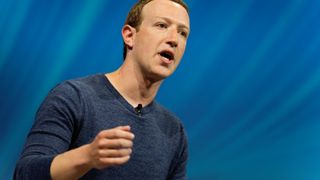Mark Zuckerberg recasts his role at Facebook while taking on dissenting board members
More than half of Facebook’s directors have left since 2019

Back in December 2019, a number of Facebook board members gathered at Mark Zuckerberg’s beachfront estate in Hawaii. There, the group discussed how the social networking company would make a comeback after facing years of backlash. Since that meeting, the Facebook CEO and chairman has been more actively in charge than ever, according to a Wall Street Journal report.
While attendees left the meeting feeling hopeful about the company’s future, Zuckerberg claimed during an earnings call just weeks later that Facebook hadn’t communicated its views clearly out of fear of offending others. Moving forward, Zuckerberg would require additional board support.
Based on WSJ’s reporting, people familiar with the inner workings of the Facebook board have since claimed Zuckerberg spent many months contending with venture capitalist Marc Andreessen, one of Facebook’s longest-serving directors. Those familiar with the matter claimed that as Facebook worked toward complying with the FTC imposed privacy requirements, the two were at each other’s throats.
Later, as the coronavirus began to take hold of the U.S., Zuckerberg recognized the outbreak as an opportunity for Facebook to play an important role in combatting the virus. It also provided a chance to change the public’s perception of the company.
In March, Facebook began working on a coronavirus information hub. That same month, Facebook announced Kenneth Chenault, the former CEO of American Express, would leave the board.
During his time on the board, Chenault had reportedly grown disillusioned with the company. Soon after joining, he had attempted to create an outside advisory group responsible for reporting on Facebook’s many problems. The group would deliver reports directly to the board, circumventing Zuckerberg. Ultimately, the project never came to fruition.
When announcing his departure, Chenault claimed he was leaving because of an opportunity to join the Berkshire Hathaway board. Despite his claims, one can’t help but wonder if he had other reasons.
Get the ITPro. daily newsletter
Receive our latest news, industry updates, featured resources and more. Sign up today to receive our FREE report on AI cyber crime & security - newly updated for 2024.
About two weeks later, Jeffrey Zients announced his intention to leave the board. Those familiar to the situation claimed Zeints had been unhappy for months, citing how the company handled misinformation across the social networking site.
In the same month, Facebook tapped businessman and former deputy treasury secretary Robert M. Kimmitt as its new lead independent director. Pending a shareholder vote in May, Nancy Killefer, a former McKinsey & Co. executive, and Tracey Travis, the CFO of Estée Lauder, will also join the board. Of the nine Facebook directors at the start of 2019, fewer than half remain, including Zuckerberg, Cheryl Sandberg, Marc Andreessen and Peter Thiel.
The board makeover certainly hasn’t slowed things at Facebook. The company recently announced it would provide small businesses with $100 million in aid. Facebook also announced Facebook Rooms, a Zoom-rivaling video chat service.
Regardless, it’s far from certain what the future holds for Facebook after Zuckerberg’s repositioning and the many other changes in the boardroom over the last few weeks. After years of controversy related to the spread of misinformation and misuse of user data, only time can tell how Zuckerberg’s more visible role at Facebook will mean for the company.




